The Seven African Powers, central to Yoruba spirituality, represent seven revered Orishas guiding life’s challenges. Their divine energy influences love, justice, and healing, resonating globally through rituals and offerings.
Overview of the Orishas and Their Significance
The Orishas are divine beings in Yoruba spirituality, embodying natural forces and human experiences. Each Orisha, such as Elegua, Yemaya, and Shango, possesses unique attributes and domains, guiding aspects of life like love, fertility, and justice. Their significance lies in their role as intermediaries between humans and the divine, offering wisdom, protection, and healing. Rituals and offerings are central to honoring them, reflecting their enduring influence across cultures and traditions. The Orishas’ collective energy is often invoked for guidance and strength, making them vital in modern spiritual practices rooted in African heritage.
The Concept of the Seven African Powers in Modern Spirituality
The Seven African Powers hold profound significance in modern spirituality, blending ancient traditions with contemporary practices. They are revered as manifestations of divine energy, guiding individuals through life’s challenges. Modern practitioners often invoke these Orishas for protection, healing, and success, using rituals, candles, and offerings to connect with their collective power. Their adaptability across cultures has made them integral to diverse spiritual traditions, from Santeria to Voodoo, emphasizing universal themes of resilience and harmony. This enduring relevance highlights their ability to transcend time, offering timeless wisdom and solace in an ever-changing world.
Origin and Cultural Context
The Seven African Powers trace their roots to Yoruba spirituality in West Africa, where Orishas embody creation, nature, and human destiny, influencing modern traditions like Santeria and Voodoo.
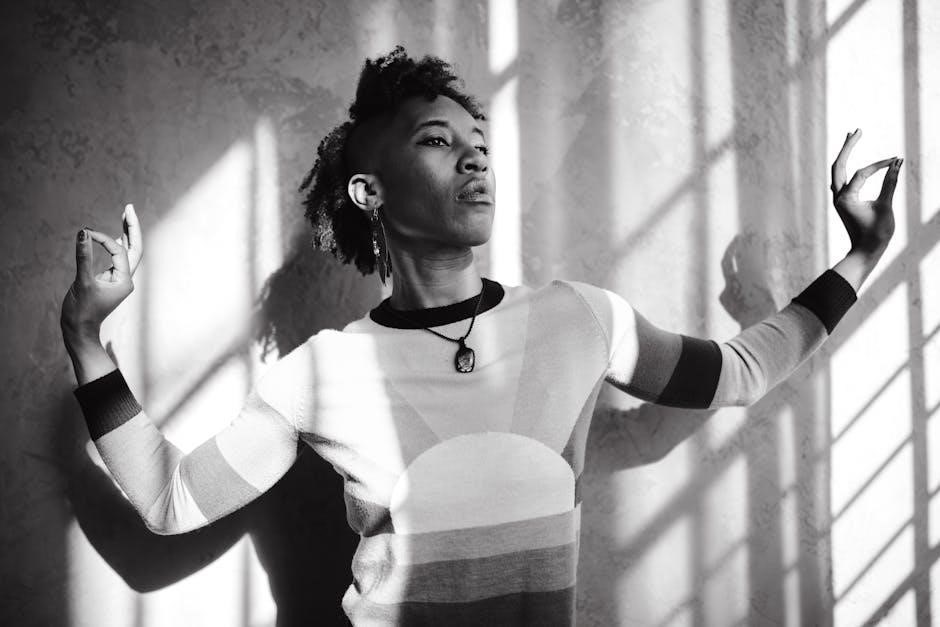
Historical Background of the Yoruba Religion
The Yoruba religion, originating in West Africa (present-day Nigeria), is rooted in a complex pantheon of Orishas, divine beings created by the Supreme God Olodumare. These Orishas govern natural forces and human experiences, serving as intermediaries between the divine and humanity. The Yoruba people traditionally believed in a single creator deity, with the Orishas embodying various aspects of life, such as fertility, justice, and healing. This ancient belief system spread across the African diaspora, blending with other traditions like Catholicism during the transatlantic slave trade, leading to syncretic practices in Santeria and Voodoo. The Yoruba religion’s resilience and adaptability have ensured its enduring influence in modern spirituality.
The Spread of Orisha Worship Across the African Diaspora
The transatlantic slave trade forcibly dispersed Yoruba people across the Americas, leading to the spread of Orisha worship. Enslaved Africans preserved their spiritual traditions by blending them with Catholicism, indigenous practices, and other local religions. This syncretism gave rise to practices like Santeria in Cuba, Voodoo in Haiti, and Candomblé in Brazil. The Orishas, now associated with Catholic saints, continued to play a central role in these new spiritual systems. Despite oppression, the resilience of African diasporic communities ensured the survival of Orisha devotion, adapting to new cultural contexts while maintaining its spiritual essence. Today, these traditions thrive globally, reflecting the enduring legacy of African cultural and religious resistance;
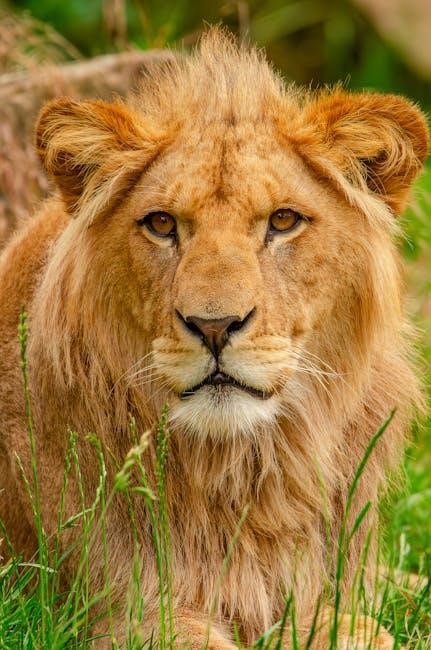
Key Orishas and Their Roles
The Seven African Powers are key Orishas, each embodying unique roles such as guardians, healers, and protectors, guiding various aspects of life and spirituality.
Elegua: The Messenger and Guardian of Crossroads
Elegua, the messenger of the Orishas, guards crossroads, symbolizing choices and transitions. He facilitates communication between humans and the divine, ensuring prayers are heard. Often depicted as a child, Elegua embodies mischief and wisdom, guiding decisions and protecting travelers. His presence at crossroads underscores his role in navigating life’s paths. Devotees offer candy, toys, and red or black candles to seek his favor. Elegua’s power lies in his ability to open paths and resolve conflicts, making him a central figure in rituals for clarity, protection, and success.
Yemaya: The Mother of the Sea and Fertility
Yemaya, the nurturing Mother of the Sea, embodies fertility, motherhood, and the life-giving forces of water. As the protector of women, children, and the ocean, she is revered for her maternal wisdom and healing powers. Often depicted as a powerful, compassionate queen, Yemaya is associated with the moon and the tides, symbolizing emotional depth and transformation. Devotees honor her with offerings of blue candles, seashells, and water, seeking her guidance in matters of love, family, and abundance. Her influence extends across Santeria, Candomble, and other traditions, making her a central figure in rituals for fertility, emotional healing, and protection. Yemaya’s essence reminds us of the ocean’s boundless nurturing energy.
Oshun: The Goddess of Love and Beauty
Oshun, the radiant goddess of love and beauty, embodies the essence of femininity, fertility, and creativity. As the Orisha of rivers, she symbolizes the flow of life, nurturing, and transformation. Revered for her charm and grace, Oshun is often depicted adorned in golden jewelry and yellow attire, reflecting her association with the sun and wealth. Her domain includes matters of the heart, artistic expression, and prosperity. Devotees honor her with offerings of honey, flowers, and mirrors, seeking her guidance in love, beauty, and personal growth. Oshun’s energy is both sensual and life-affirming, making her a beloved figure in Santeria, Candomble, and other Afro-Caribbean traditions, where her power to inspire joy and harmony is deeply cherished.
Shango: The Powerful King of Fire and Justice
Shango, the formidable king of fire and justice, embodies strength, authority, and righteousness. As the Orisha of thunder and lightning, he wields immense power, commanding respect and fear. Shango is often depicted holding a double-headed axe, symbolizing his dual role as a ruler and a warrior. He is revered for his ability to uphold justice, protect the innocent, and vanquish wrongdoers. Devotees offer him red and black items, such as candies and cloths, to seek his assistance in legal matters and personal conflicts. Shango’s fiery energy is both protective and transformative, inspiring courage and resolve. His legacy endures in Afro-Caribbean traditions, where his influence remains a cornerstone of spiritual practices and cultural identity.
Obatala: The Creator and Healer
Obatala, the Orisha of creation and healing, is revered as the embodiment of peace, purity, and wisdom. He is often depicted dressed in white, symbolizing his association with clarity and cleanliness. Known as the creator of human bodies, Obatala is believed to have shaped the physical form of humanity. His healing powers are sought for both physical and spiritual ailments, with offerings of white foods, flowers, and fabrics being common. Obatala is also a mediator, resolving conflicts and fostering harmony. His calm and serene energy makes him a protector of the innocent and a source of guidance for those seeking balance in life. His influence extends across various traditions, emphasizing his enduring significance in African spirituality.
Oya: The Goddess of Change and Storms
Oya, the Orisha of storms, change, and transformation, embodies the fierce power of nature. She is often depicted as a warrior, wielding a sword and associated with the colors red and purple. Oya is revered for her ability to bring about change, whether through destruction or renewal, and is often called upon to clear obstacles and stagnant energy. Her domain includes the winds, lightning, and the marketplace, symbolizing her role in navigating life’s turbulence. Oya is also a protector of women and children, offering strength and courage. Rituals in her honor often involve offerings of red candles, storms, and sacrifices to invoke her transformative power and guidance during times of upheaval.
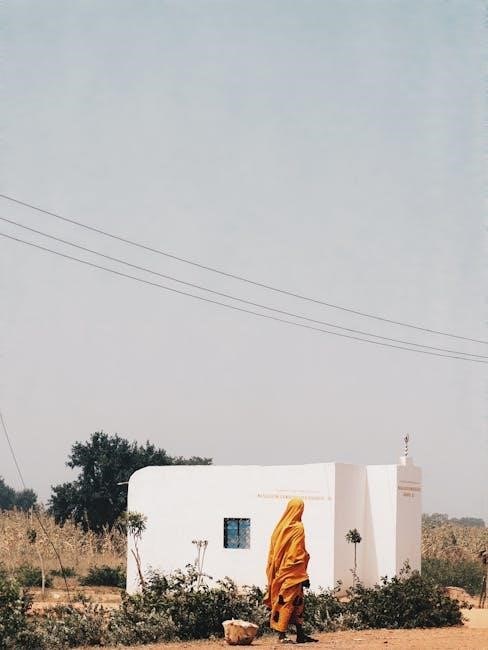
Ogun: The God of Metalwork and War
Ogun, the Orisha of metalwork, war, and strength, is revered for his transformative power and craftsmanship. As a master blacksmith, he is credited with creating tools and weapons that shaped human progress. Often depicted as a muscular, powerful man wielding an iron sword, Ogun is associated with the colors green and black. He is both a fierce warrior and a healer, believed to protect communities from harm and bring prosperity through his work. Rituals in his honor often involve offerings of iron tools, palm fronds, and red wine, symbolizing his strength and ability to forge new paths in life. His energy embodies resilience and the power to overcome adversity.
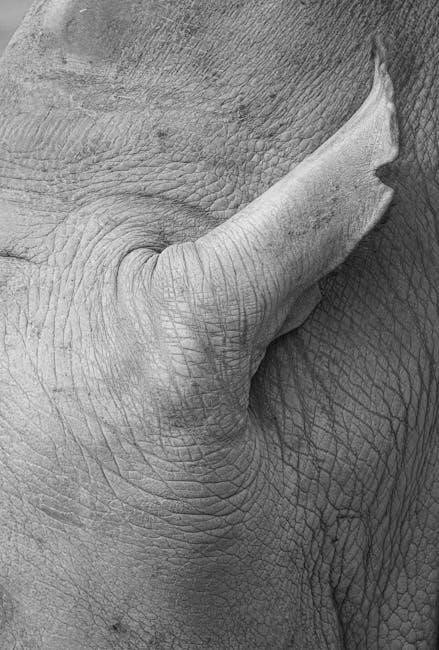
Cultural Variations and Syncretism
The Seven African Powers blend African traditions with local practices, forming unique spiritual systems like Santeria and Voodoo. Syncretism with Catholic saints preserves their essence across cultures.
Santeria, Voodoo, and Hoodoo Traditions
Santeria, Voodoo, and Hoodoo are Afro-diasporic traditions that honor the Seven African Powers. Santeria, rooted in Cuba, blends Yoruba beliefs with Catholicism, while Voodoo, prominent in Haiti and New Orleans, focuses on Loa spirits. Hoodoo, an African American tradition, emphasizes magical practices for problem-solving. These traditions share a common thread of invoking the Orishas for guidance, healing, and protection. Rituals often include offerings, candles, and herbs to connect with their energies. Despite cultural variations, these practices preserve the essence of African spiritual heritage, adaptating to diverse contexts while maintaining the core principles of reverence and divine connection to the Seven African Powers.
The Syncretization of Orishas with Catholic Saints
The syncretization of Orishas with Catholic saints emerged as a survival strategy during the transatlantic slave trade. Enslaved Africans merged their deities with Catholic figures to disguise their spiritual practices. For instance, Eshu, the messenger Orisha, was associated with the Holy Trinity, while Yemaya, the sea goddess, was linked to the Virgin Mary. This blending allowed African traditions to endure under colonial rule. In Santeria and other Afro-Caribbean religions, this syncretism remains a cornerstone, enabling devotees to honor their ancestors while navigating oppressive religious systems. The practice highlights resilience and adaptability, preserving the essence of African spirituality within a Christian framework.
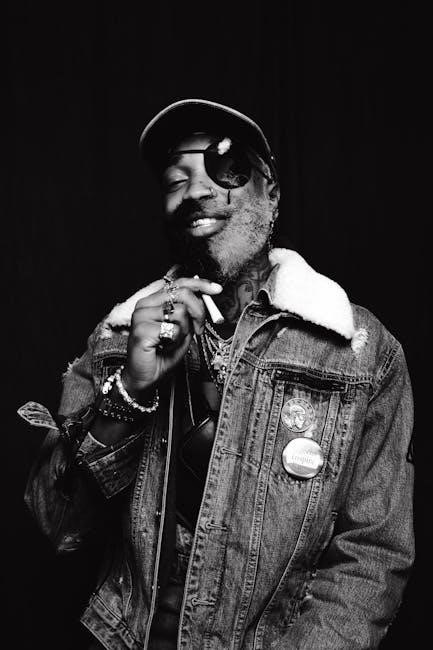
Rituals and Practices
Rituals honor the Seven African Powers through offerings, candles, and sacred objects. Devotees use herbs, honey, and coconut to connect with their divine energy, seeking guidance and overcoming challenges.
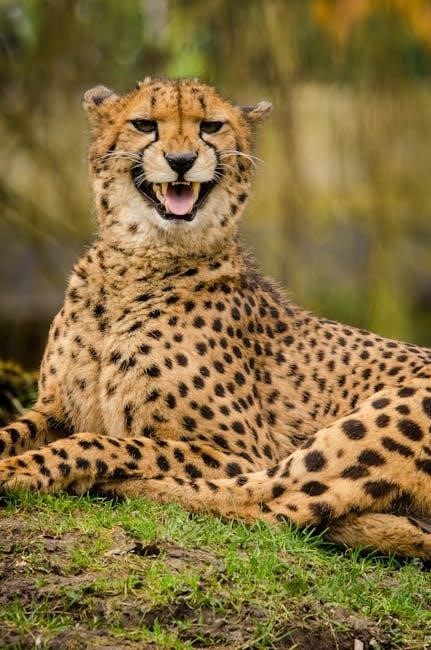
Offerings and Rituals for the Seven African Powers
Devotees honor the Seven African Powers with offerings such as candles, oils, honey, and coconuts. Rituals involve lighting candles and using sacred objects to connect with their divine energy. These practices aim to seek guidance, protection, and support in overcoming life’s challenges. The collective energy of the Orishas is believed to amplify intentions, fostering healing and transformation. By performing these rituals, individuals demonstrate respect and gratitude, strengthening their spiritual bond with the Seven African Powers.
The Use of Candles, Herbs, and Sacred Objects
Candles, herbs, and sacred objects play a vital role in rituals for the Seven African Powers. Multicolored candles, representing each Orisha, are used to connect with their collective energy. Herbs like sage and incense are burned for purification and to attract divine presence. Sacred objects, such as coconuts, shells, and honey, are offered to honor the Orishas and seek their blessings. These elements create a sacred space, amplifying intentions and fostering spiritual connection. By incorporating these tools, devotees aim to harmonize their energies with the divine, ensuring balance and prosperity in their lives.
The Seven African Powers, through their divine essence, continue to inspire and guide millions, offering wisdom, healing, and strength across cultures and generations, ensuring their timeless relevance.
The Enduring Legacy of the Seven African Powers
The Seven African Powers, rooted in Yoruba spirituality, have left an indelible mark on global spiritual practices. Their influence spans continents, blending seamlessly into traditions like Santeria, Voodoo, and Hoodoo. These Orishas, embodying universal themes of love, justice, and healing, continue to inspire devotion across cultures. Their adaptability and profound wisdom ensure relevance in modern times, offering guidance and strength to believers. Rituals and offerings remain vital, connecting practitioners to their divine energy. The legacy of the Seven African Powers lies in their ability to transcend boundaries, providing solace and empowerment to those seeking harmony and balance in life.